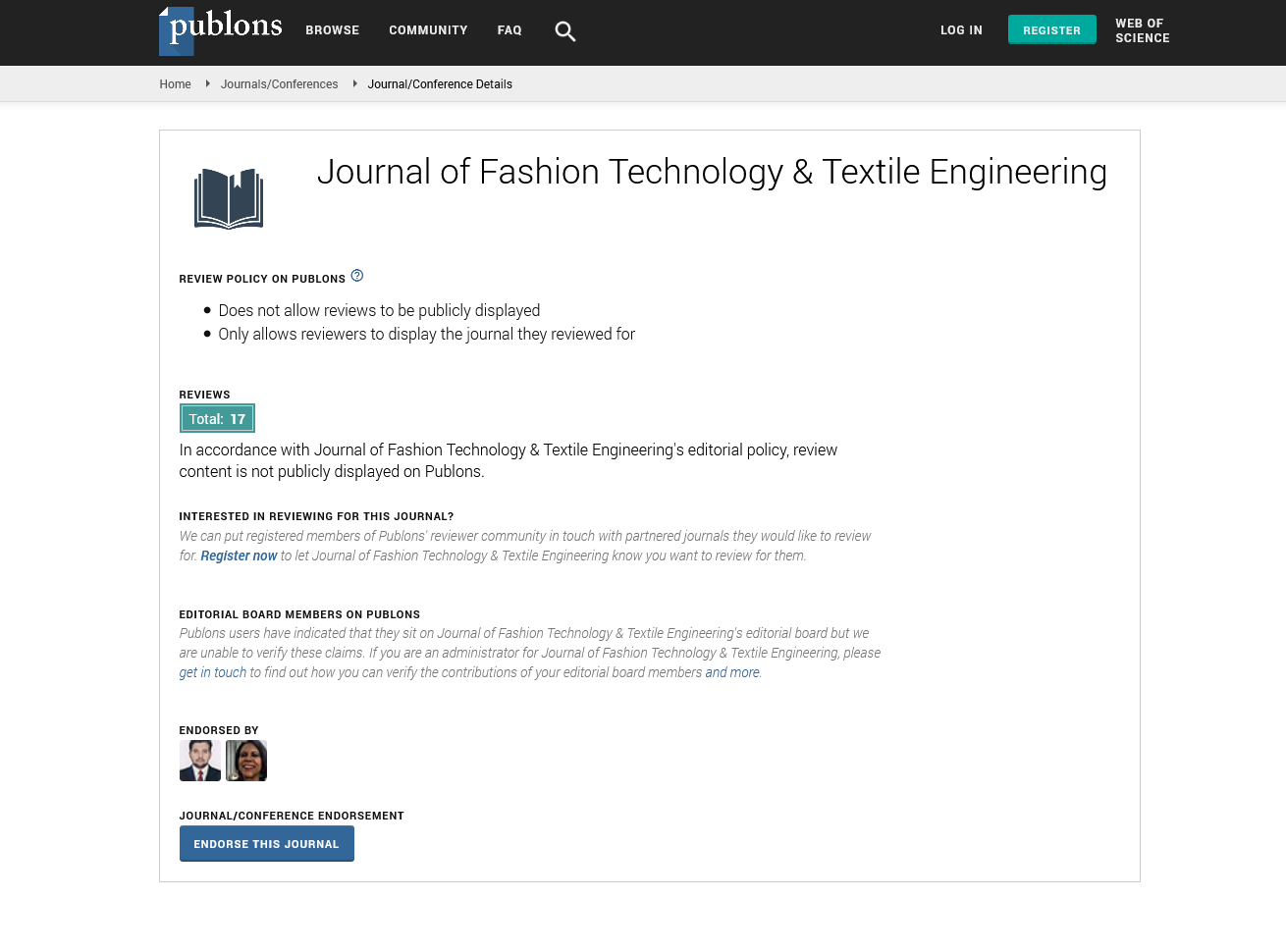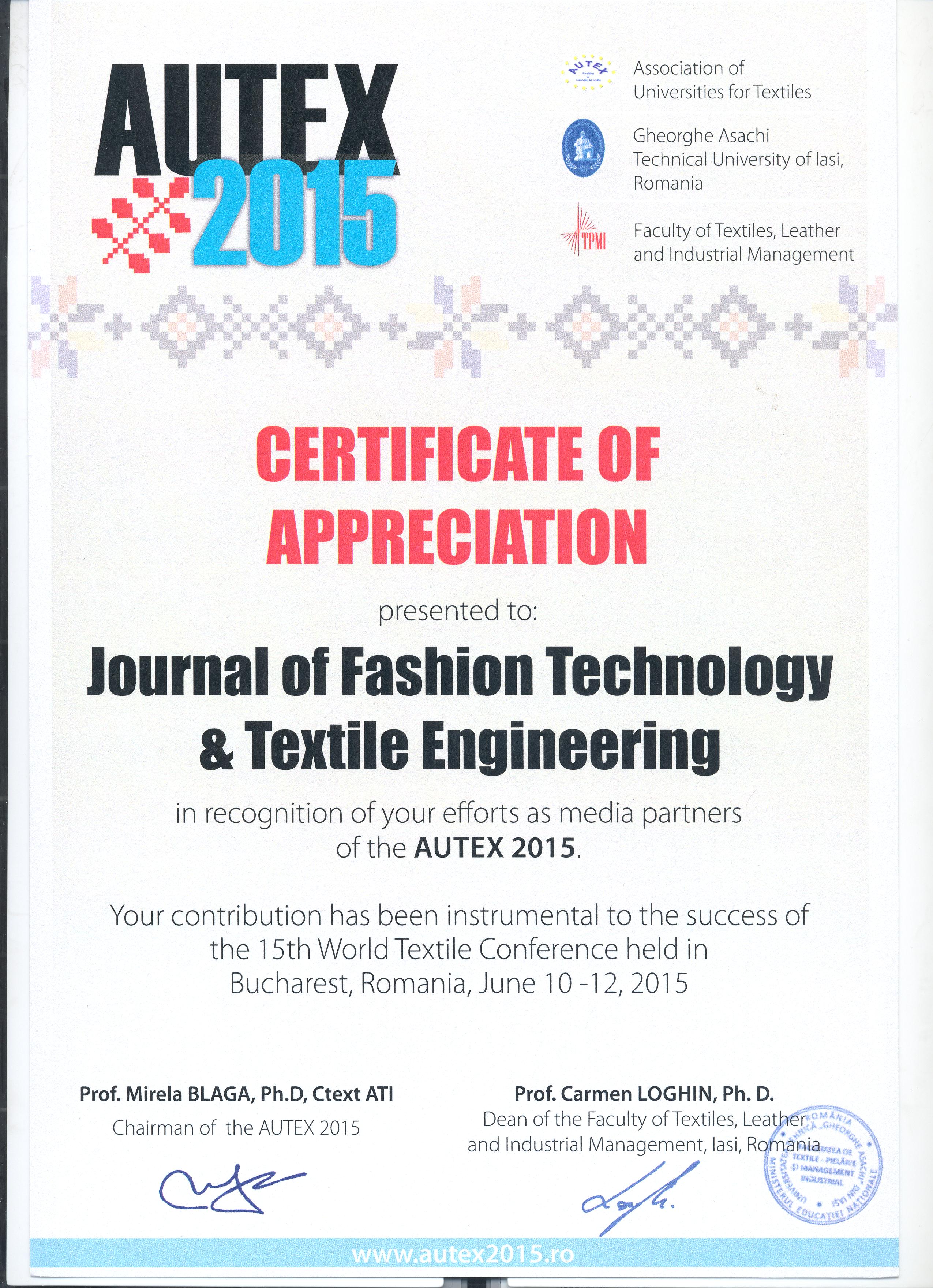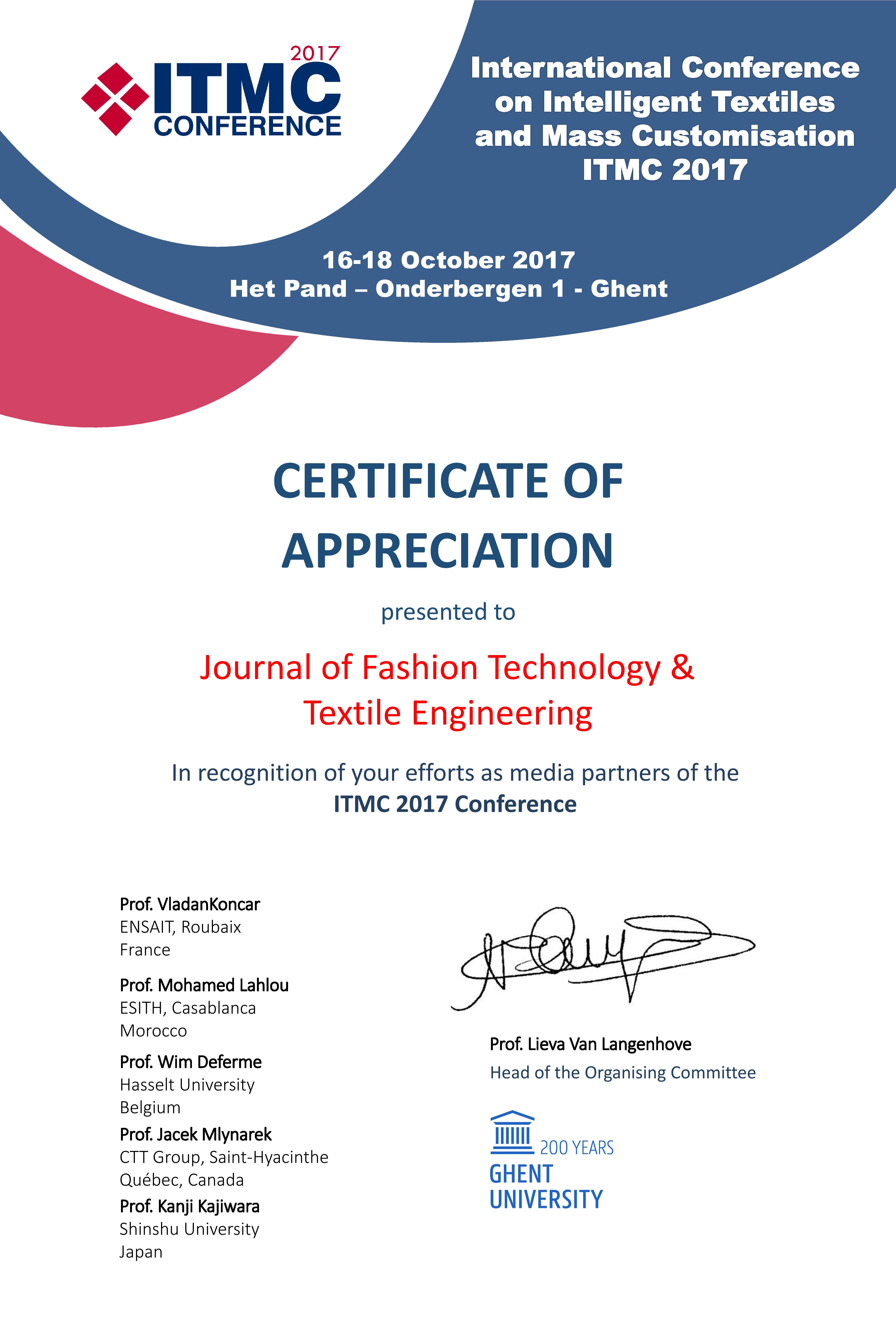Perspective, J Fashion Technol Textile Vol: 12 Issue: 6
Innovations of Fashion Tech Startups in Advancing Sustainability and Efficiency in Fashion
Anisha Samridh*
1Department of Fashion Technology, National Institute of Design, Ahmedabad, India
*Corresponding Author: Anisha Samridh,
Department of Fashion Technology,
National Institute of Design, Ahmedabad, India
E-mail: anisha-samridh@gmail.com
Received date: 26 November, 2024, Manuscript No. JFTTE-24-155266;
Editor assigned date: 28 November, 2024, PreQC No. JFTTE-24-155266 (PQ);
Reviewed date: 12 December, 2024, QC No. JFTTE-24-155266;
Revised date: 20 December, 2024, Manuscript No. JFTTE-24-155266 (R);
Published date: 27 December, 2024, DOI: 10.4172/2329-9568.1000388.
Citation: Samridh A (2024) Innovations of Fashion Tech Startups in Advancing Sustainability and Efficiency in Fashion. J Fashion Technol Textile 12:6.
Description
Fashion tech startups are transforming the way the fashion industry operates by combining advance technology with traditional design principles. With the growing demand for more sustainable and efficient practices, fashion tech startups are playing an essential role in changing the way fashion is designed, manufactured, marketed and consumed. One of the most prominent areas where fashion tech startups are making a significant impact is in sustainability. The fashion industry has long been associated with environmental degradation, including excessive waste, pollution and resource consumption. Many startups are focusing on producing sustainable fabrics, eco-friendly production processes and waste-reduction technologies. For instance, companies are developing biodegradable textiles and fabrics made from recycled materials such as plastic bottles, coffee grounds and even algae. Additionally, fashion tech startups are implementing circular economy models that focus on recycling and reusing materials, allowing garments to be repurposed at the end of their lifecycle. These efforts are helping to minimize the fashion industry's carbon footprint and promote more sustainable consumer behaviors.
Another area of innovation determined by fashion tech startups is in the personalized shopping experiences. Artificial Intelligence (AI) and machine learning algorithms, these startups are producing tools that can predict consumer preferences and recommend products based on individual tastes and browsing ways. Virtual fitting rooms, for example, are becoming increasingly popular, allowing customers to try on clothes digitally before making a purchase. This eliminates the need for physical try-ons and helps customers make more informed decisions. Additionally, AI-powered chatbots and personal stylists are improving the online shopping experience by producing personalized advice and guidance to customers.
In terms of production and supply chain efficiency, fashion tech startups are developing technologies that streamline the manufacturing process and reduce lead times. By using advanced tools like 3D printing and Computer-Aided Design (CAD), designers can try garments quickly and accurately, reducing the time it takes to bring new collections to market. Moreover, startups are using blockchain technology to improve transparency and traceability in the supply chain. Blockchain can provide a secure and transparent way to track the journey of materials, ensuring that consumers have access to information about the origins of their garments and whether ethical practices were followed during production.
Fashion tech startups are also embracing the digital revolution by producing virtual fashion experiences. The increase of the metaverse and Virtual Reality (VR) has opened up new opportunities for fashion brands to engage with customers in innovative ways. Virtual fashion shows, Augmented Reality (AR) shopping experiences and digital clothing are gaining popularity as a way for consumers to engage with fashion without physically relating with garments. Some startups are even producing fully digital clothing lines, allowing consumers to purchase and wear virtual clothes in their digital avatars. This new frontier in digital fashion is reshaping the industry and offering limitless possibilities for originality and expression. Fashion tech startups have been instrumental in providing solutions for brands to adapt to this new reality, including e-commerce platforms, virtual showrooms and digital marketing tools.
Conclusion
In conclusion, fashion tech startups are redefining the fashion industry by introducing innovative solutions that prioritize sustainability, efficiency and personalized experiences the power of technology, these startups are beginning some of the most persistent issues in fashion today and for a more sustainable and digitally connected future. While fashion tech startups remain to innovate and disrupt the traditional fashion ecosystem, they also face challenges such as securing funding, scaling their operations and building brand awareness. However, with the fashion industry's increasing demand for sustainable and tech solutions.
 Spanish
Spanish  Chinese
Chinese  Russian
Russian  German
German  French
French  Japanese
Japanese  Portuguese
Portuguese  Hindi
Hindi 


